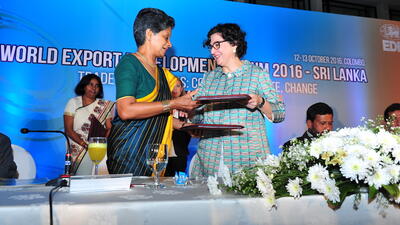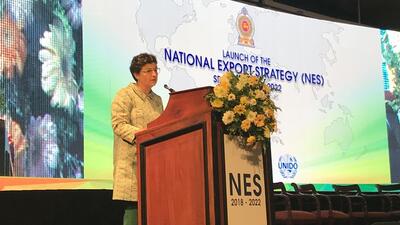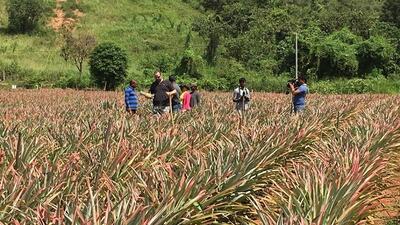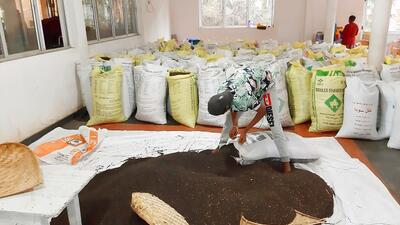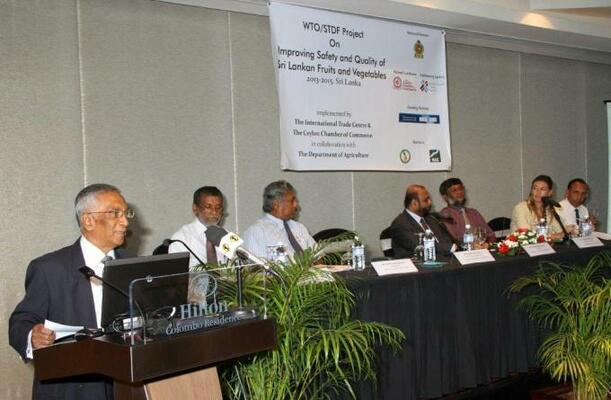
Raising standards of Sri Lankan fruits and vegetables
A project to help Sri Lankan fruits and vegetables meet international quality and food safety requirements has been launched by the International Trade Centre (ITC) and the Ceylon Chamber of Commerce (CCC), in partnership with Sri Lanka’s Department of Agriculture (DOA).
To initiate the strengthening of sanitary and phytosanitary (SPS) capacities in Sri Lanka, 20 officers of the Plant Quarantine Services will undergo a Training of Trainers programme from to 30 October to 8 November in Negenbo.
The project aims to enable 900 beneficiary stakeholders, including 400 farmers, to upgrade their skills and competence to enable compliance with SPS measures.
Sri Lanka’s Minister of Agriculture, Mahinda Yapa Abeywardena, has welcomed the project as very timely: ‘The government has identified the importance of strengthening and improving the marketing of agricultural produce to reduce post-harvest losses and to improve the income of farmers. At present, consumers around the world are deeply concerned about the quality and safety of the fruits and vegetables they consume due to health reasons. To be competitive in a global economy, agricultural produce has to conform to international standards.’
Implemented by ITC in close cooperation with the CCC, the project is funded by the Standards and Trade Development Facility (STDF). Other main stakeholders include the Ministry of Health, the Sri Lanka Standards Institute, the Lanka Fruits and Vegetable Producers Processors Exporters Association, the National Agribusiness Council, and fruit and vegetable-growing farmers. More than 80 stakeholders from both the private and public sectors attended the official launch in Colombo on 27 September 2013.
‘All fruits and vegetables must conform to international food safety standards to be eligible for export to Europe, the United States, Australia and ASEAN markets and to be safe for local consumption,’ said Ludovica Ghizzoni, Adviser on Export Quality Management for ITC’s Enterprise Competitiveness Section. ‘Training and building the capacity of local farmers to attain these standards will give them an opportunity to earn a better income and to be competitive in a global economy.’
The two-year project aims to give public and private stakeholders the information and tools they need to comply with international technical requirements and to improve the competitivity of selected fresh fruits and vegetables, such as papaya, mango, pineapples, tomatoes, green chili and protected agriculture. The project aims to build closer linkages between farmers and domestic buyers, such as hotels, supermarkets and exporters, as well as international buyers.
Through the project, farmers, quarantine officers, and staff from the Department of Agriculture and its Agriculture Extension Division will be trained on issues ranging from the European Union’s phytosanitary standards, pest surveillance, plant quarantine and pest risk analysis, pest and disease management. Training will also include good agricultural practices and post-harvest handling and also management skills. Workshops will be held for public health inspectors, exporters and processors.
A website enabling the exchange of information on the STDF-funded project and on quality and food safety issues related to fruits and vegetables was launched in October and was well received.
‘In Sri Lanka there is an urgent need to facilitate access of information, in particular for farmers. Spssrilanka.lk with its SMS-features can be a good means,’ said Ms. Dawn Austin, former chairperson of the Exporters' Association of Sri Lanka.
The project builds on some of the critical findings of a survey on non-tariff measures (NTMs) faced by Sri Lankan exporters, which was conducted by ITC in 2010. The majority of reported NTM cases adversely affecting Sri Lanka’s agricultural produce were technical regulations and conformity assessment in particular to export to the European Union, the survey revealed. A lack of local trained officials was also found to pose problems.







